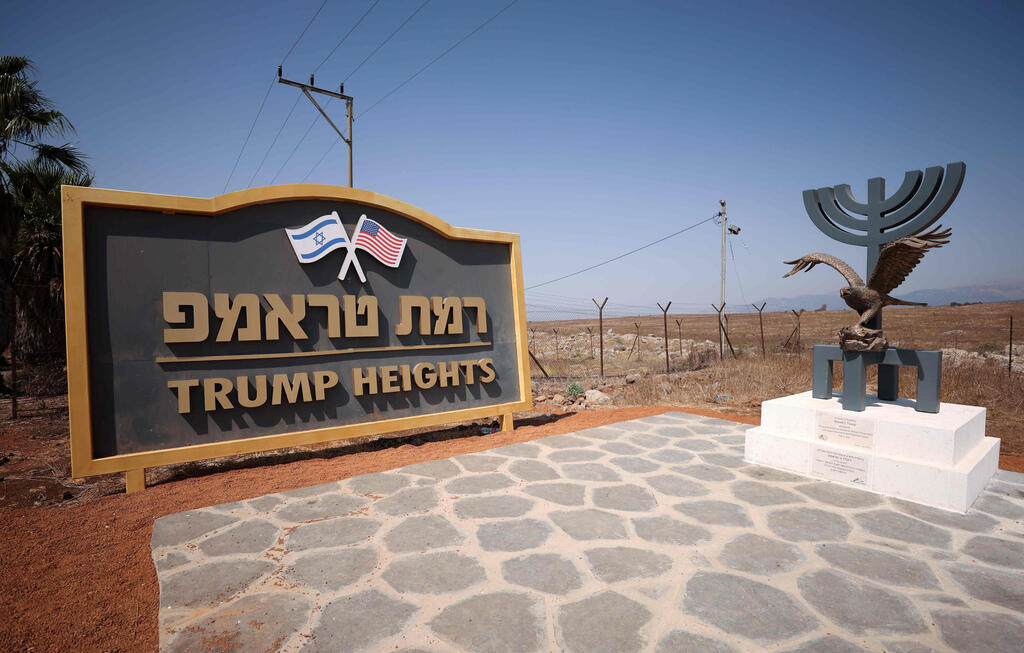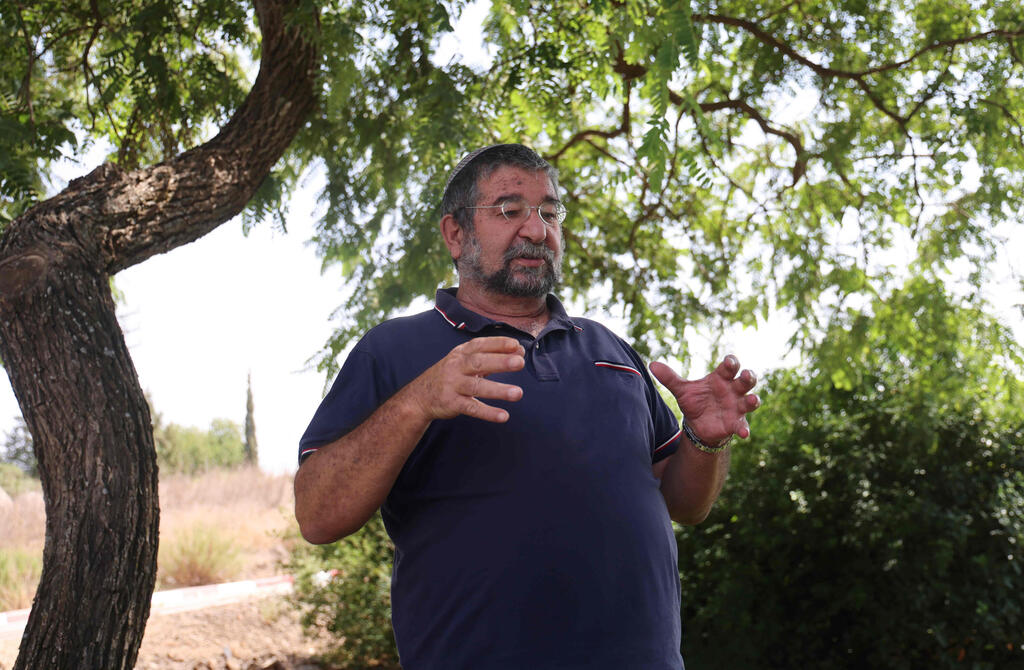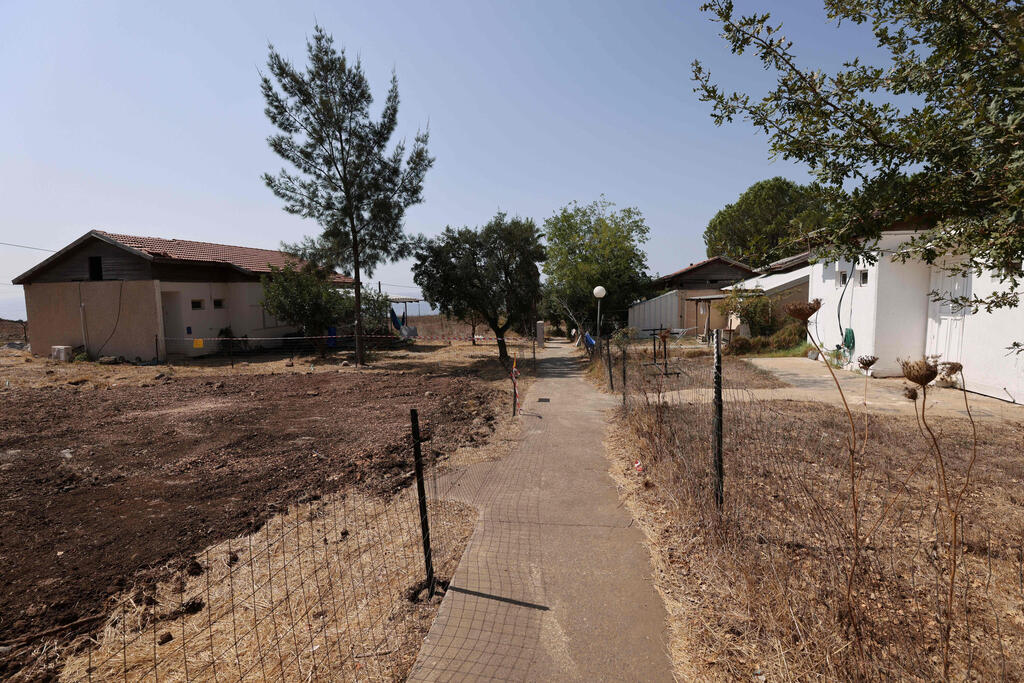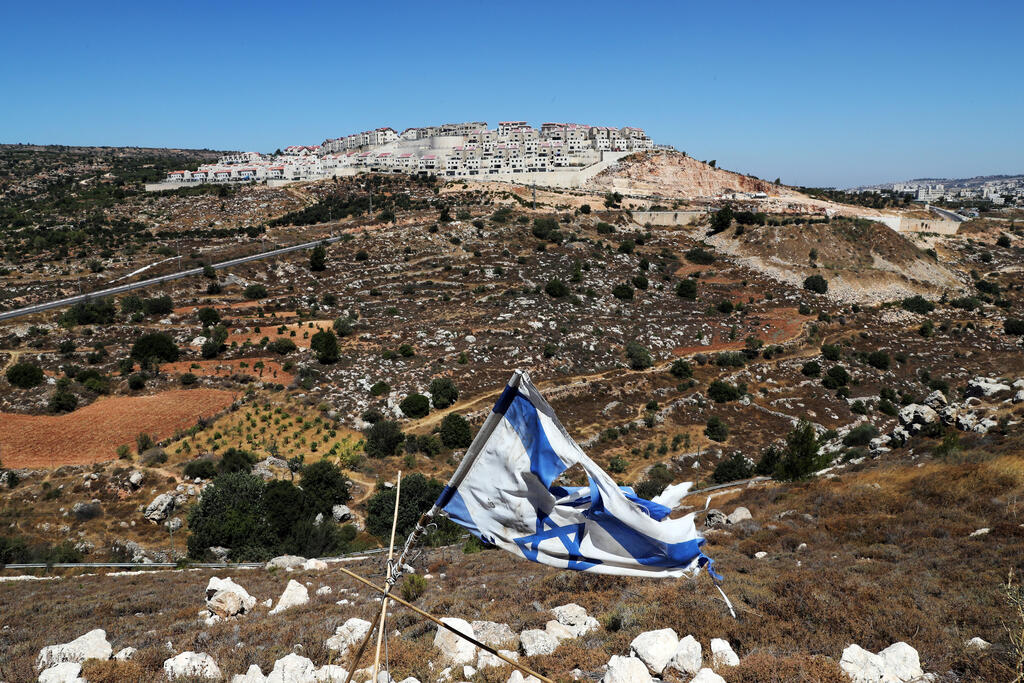Getting your Trinity Audio player ready...
On a dusty plain in the Golan Heights, a golden-lettered sign with Israeli and American flags stands before a rusty wire fence as the gateway to "Trump Heights".
But this is no luxury hotel or golf course set up by the property developer turned president.
Instead, it is a town - although the international community sees all communities in the Golan Heights as organized settlements - inaugurated in June 2019 by Prime Minister Benjamin Netanyahu as a celebration to mark U.S. President Donald Trump's recognition of the region as Israeli territory.
For residents, it is the most visible legacy Trump has had here.
"There is indeed a big change," said Haim Rokach, head of the Golan regional council, his eyes sparkling at the mention of the U.S. president's name.
"Since Trump's declaration and the decision to build the place, we see a lot of interest from investors."
The Golan Heights, a strategic military zone, was seized by Israel from Syria in the Six-Day War of 1967.
Trump's recognition of Golan was the latest in a string of steps away from global consensus, including recognizing Jerusalem as Israel's capital, and giving Netanyahu the green light to build settlements deemed illegal under international law.
8 View gallery
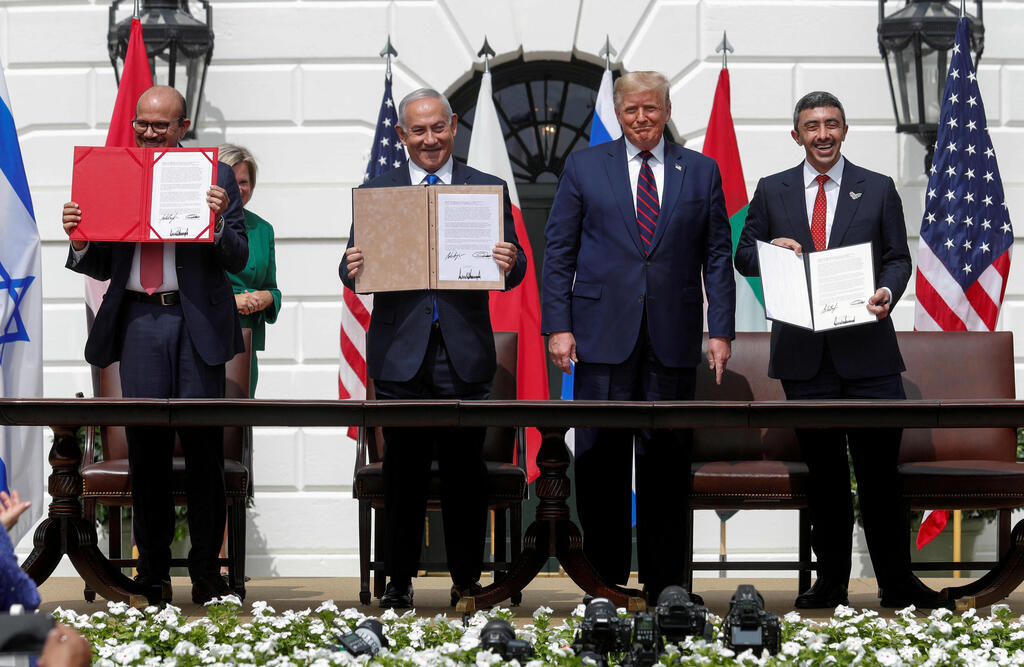

Bahrain’s Foreign Minister Abdullatif Al Zayani, Israel's Prime Minister Benjamin Netanyahu and United Arab Emirates (UAE) Foreign Minister Abdullah bin Zayed display their copies of signed agreements while U.S. President Donald Trump looks on as they participate in the signing ceremony of the Abraham Accords
(Photo: Reuters)
Along with Trump's backing for normalization deals between Israel, the UAE and Bahrain - lamented by Palestinians as a "stab in the back" - Trump has changed the dynamics of the dispute between the Jewish state and the Palestinians.
As he battles to stay in the White House for a second term, Trump's strongly pro-Israel stance has further endeared him to evangelical Christians, a powerful voting bloc.
The most ardent evangelical faithful believe the state of Israel was established in line with biblical prophecy and as a prerequisite for the second coming of Christ.
Settlement expansion
While the Trump Heights sign is new, the community is not. It was founded in 1991, following the collapse of the Soviet Union when hundreds of thousands of Jewish people emigrated to Israel.
One group of around 15 families carved out a living here, but the associated farming life is tough. Many struggled to make ends meet, and just five families remaining, many of them elderly.
Naming the community after Trump has given Israeli authorities an opportunity to revive the community, and 20 Jewish families are due to move to the remote spot by the end of November.
8 View gallery
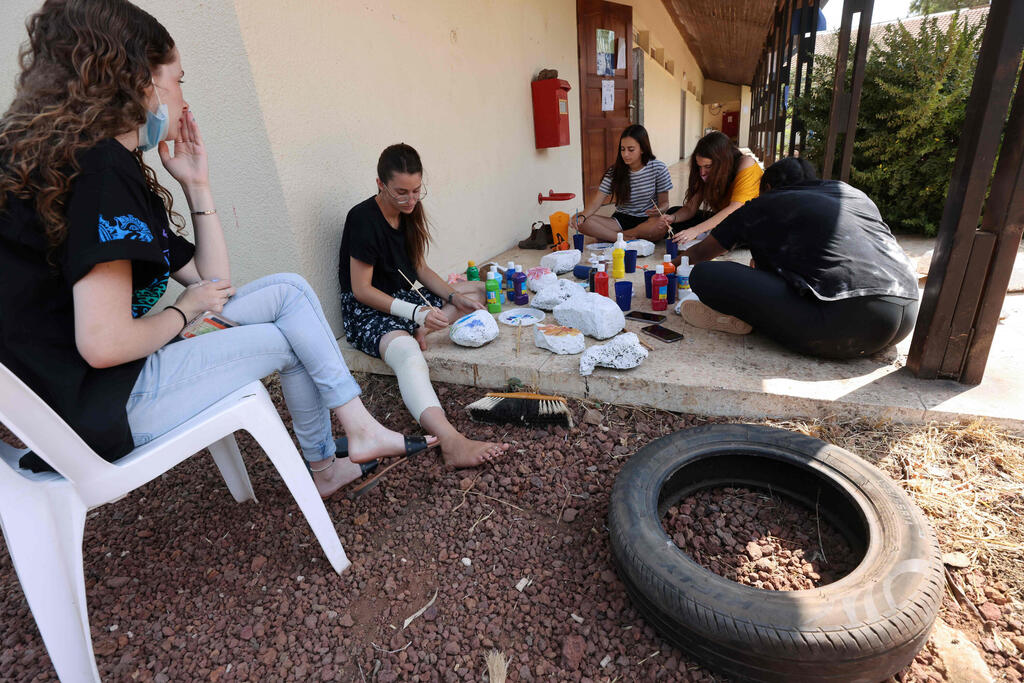

Israeli teenagers take part in camp activities at Trump Heights, where they are put through a six-month program ahead of national service
(Photo: AFP)
Diggers were recently leveling the land ready for their homes, with the aim of 20 families arriving each year for the next decade, said Shai Toni Yeheskel, from the local Golan council.
"For the first time in almost 30 years they have hope," Yeheskel said. "It's going to become one of the centers of the Golan."
Living in run-down houses, the aging residents have steered clear of outsiders who have visited the community since it was renamed.
But a group of teenagers lives in the community, where they are put through a six-month program ahead of national service.
"There are some lonely elderly residents here," said Ayelet Schwab, 18, from the settlement of Efrat in the West Bank.
"We help them, to carry things they buy, we talk to them, we check on them."
Standing beside her, 18-year-old Adi Hazan said one of their goals was to have more people move in.
"New people will arrive to build this place, they will bring life to it," said Hazan, from Porat in central Israel, as the other teenagers painted stones to decorate a campfire site.
8 View gallery
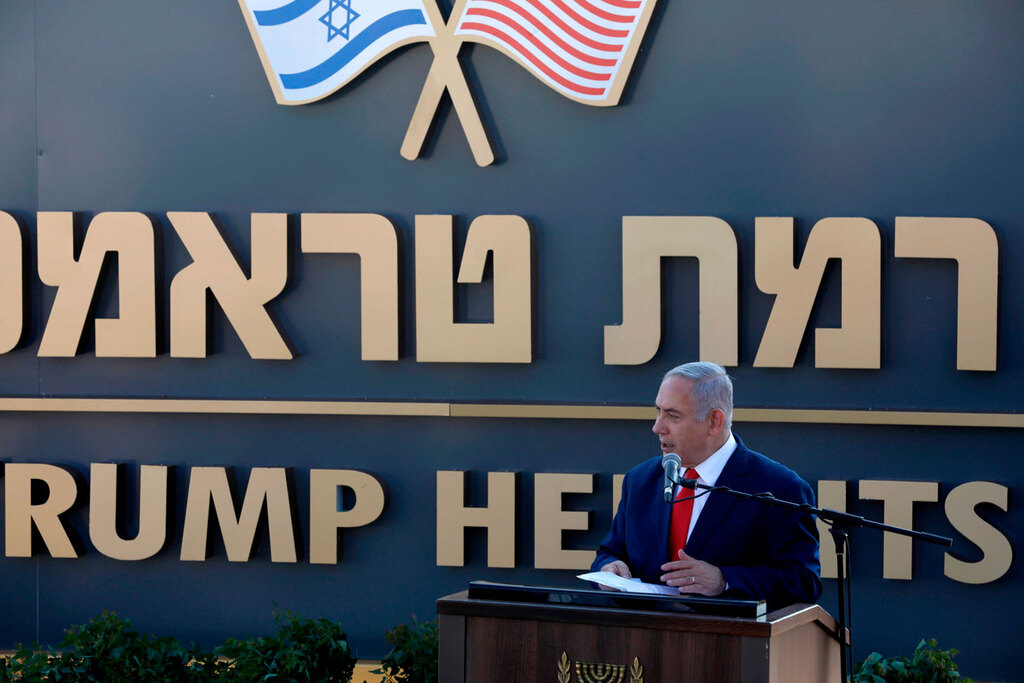

Prime Minister Benjamin Netanyahu speaking at the inaguration of Trump Heights
(Photo: AFP)
Around 25,000 Israelis live in the Golan Heights, along with some 23,000 Druze, who remained on the land after it was seized in 1967.
The numbers of settlers are far greater in the West Bank, where around 450,000 Israelis live in settlements -- alongside over 2.8 million Palestinians.
'Irreparable damage'
While settlement-building has been Israeli government policy for decades, their approval slowed when U.S. President Barack Obama was in charge.
Trump reversed this trend.
The number of settlement homes approved nearly doubled in the first three years of his presidency, compared to the last three years of Obama's leadership, Israeli anti-settlement organization Peace Now calculate.
Israel has approved over 12,000 West Bank homes in 2020, a record high for Jewish building in occupied Palestinian territory, it says.
"Settlement building really does coincide with Trump," said Brian Reeves from Peace Now.
With a time gap between approval and construction, Reeves says repercussions will be felt over the next three years -- even if Trump is not reelected in November.
"Trump has done irreparable damage to the entire international consensus on... how you can get to peace," Reeves said.
8 View gallery
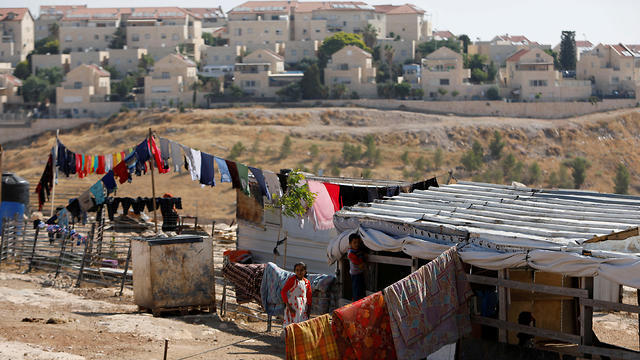

Palestinian children play outside their dwelling in al-Eizariya town with the settlement of Ma'ale Adumim in the background
(Photo: Courtesy)
The Palestinians have cut ties with the Trump administration over its pro-Israeli stance, rejecting a US initiative published in January which included plans for Israel to annex swathes of the West Bank.
In Golan, the U.S. policy shift encouraged investors because the land will remain under Israeli control indefinitely.
There may even be an opportunity for a luxury hotel.
"We have plenty of hotels in the Golan, but not enough rooms. Especially exclusive rooms," said the local council's Yeheskel.
"Hopefully we'll have many more hotels here in the near future."
Time will tell if one of those will be a Trump Hotel.


